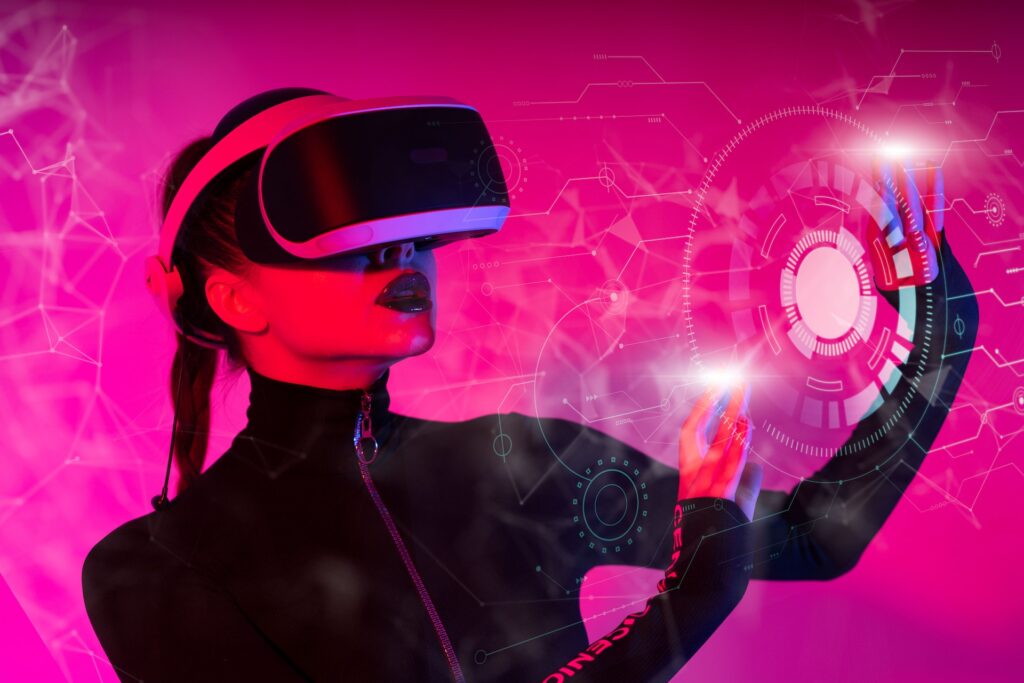Artificial Intelligence: Shaping the Future of Innovation
Artificial Intelligence (AI) has emerged as one of the most transformative technologies of the 21st century, revolutionizing various industries and reshaping the way we live and work. This article explores the profound impact of AI on society, its current state, and the potential it holds for the future. Artificial Intelligence: Shaping the Future of Innovation
The Evolution of AI
The concept of AI dates back to ancient mythology, where mechanical beings with human-like intelligence were a recurring theme. However, AI as we know it today began to take shape in the mid-20th century with the development of computer technology and the advent of digital computing. Pioneers like Alan Turing and John McCarthy laid the foundation for AI by introducing fundamental concepts and programming languages.
AI in Today’s World
In the present day, AI is no longer confined to science fiction; it is a tangible reality that permeates our daily lives. From voice assistants like Siri and Alexa to recommendation systems on streaming platforms and autonomous vehicles, AI is seamlessly integrated into various applications. Moreover, it plays a pivotal role in industries such as healthcare, finance, manufacturing, and transportation, where it enhances efficiency, accuracy, and decision-making.
Machine Learning and Deep Learning
At the core of AI’s success lies machine learning (ML) and deep learning (DL). ML algorithms enable computers to learn from data, make predictions, and adapt to changing scenarios. DL, a subset of ML, employs neural networks to process vast amounts of data and extract intricate patterns, enabling AI systems to perform complex tasks like image and speech recognition.
Artificial Intelligence: Shaping the Future of Innovation
AI’s Impact on Healthcare
One of the most promising applications of AI is in the healthcare sector. AI-powered diagnostic tools can analyze medical images, such as X-rays and MRIs, with remarkable accuracy, aiding healthcare professionals in early disease detection. Furthermore, AI-driven predictive analytics help hospitals optimize resource allocation and improve patient outcomes.
AI in Autonomous Systems
AI has made significant strides in the development of autonomous systems. Self-driving cars, for example, rely on AI algorithms to navigate roads, make split-second decisions, and ensure passenger safety. Similarly, drones equipped with AI can be used for various tasks, from monitoring crops to search and rescue operations.
Ethical Considerations
As AI becomes increasingly integrated into society, ethical concerns must be addressed. Issues related to privacy, bias in algorithms, and job displacement due to automation require careful consideration. Ethical frameworks and regulations are being developed to ensure AI is used responsibly and for the benefit of all.
The Future of AI
The future of AI is both promising and challenging. AI research continues to advance, pushing the boundaries of what is possible. Quantum computing, a nascent technology, holds the potential to accelerate AI development exponentially, solving problems that were previously unsolvable.
Artificial Intelligence: Shaping the Future of Innovation
AI’s potential extends beyond mere automation; it can contribute to solving global challenges like climate change, disease prevention, and resource management. However, it also raises concerns about job displacement and the need for reskilling the workforce.
Conclusion
Artificial Intelligence has come a long way since its inception and is poised to play an increasingly vital role in shaping the future. With ethical considerations at the forefront, we must harness the power of AI to drive innovation, enhance efficiency, and improve the quality of life for people worldwide. As we navigate this AI-driven future, collaboration between researchers, policymakers, and industry leaders will be essential in realizing its full potential while mitigating its risks.
Challenges and Opportunities
While AI offers immense promise, it also presents various challenges and opportunities:
- Data Privacy and Security: With AI systems processing vast amounts of personal data, data privacy and security are paramount. Robust measures must be in place to protect individuals’ information and prevent data breaches.
- Algorithmic Bias: AI algorithms are only as good as the data they are trained on. If training data contains biases, AI systems can perpetuate and even exacerbate these biases. Efforts to mitigate bias and ensure fairness in AI decision-making are essential.
- Job Displacement: As automation becomes more prevalent, there is concern about job displacement. However, AI also has the potential to create new jobs and opportunities in fields related to AI development, maintenance, and oversight.
- Education and Reskilling: To adapt to an AI-driven job market, individuals must acquire new skills. Governments and organizations should invest in education and reskilling programs to empower workers for the jobs of the future.
- Healthcare Revolution: AI has the potential to revolutionize healthcare by enabling personalized treatments, drug discovery, and predicting disease outbreaks. It can also lead to cost savings and improved patient outcomes.
- Environmental Impact: AI can contribute to environmental sustainability through better resource management, climate modeling, and energy efficiency optimization.
- Ethical Frameworks: The development of robust ethical frameworks and regulations is crucial to ensure that AI is developed and used ethically and responsibly.
- Global Collaboration: AI is a global endeavor that requires international cooperation. Collaborative efforts can help address challenges like AI arms races and ethical standards.
Conclusion
Artificial Intelligence is at the forefront of technological innovation, offering transformative solutions to some of humanity’s most pressing challenges. However, it is essential to navigate this AI-driven future with a clear commitment to ethics, fairness, and inclusivity.
Artificial Intelligence: Shaping the Future of Innovation
As AI continues to advance, it is incumbent upon governments, industry leaders, researchers, and society as a whole to work together to harness its potential while addressing its risks. By doing so, we can ensure that AI contributes to a more prosperous, equitable, and sustainable future for all. With responsible development and thoughtful regulation, AI has the power to revolutionize industries, improve healthcare, address climate change, and enhance our quality of life in ways we can only begin to imagine.

